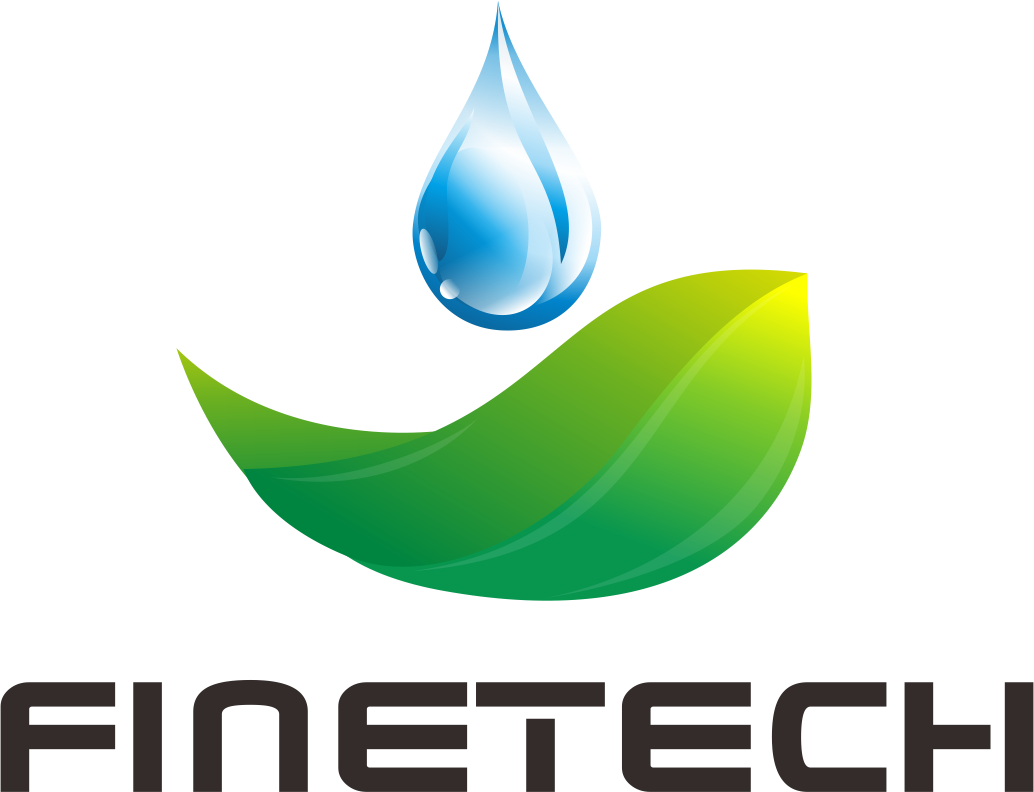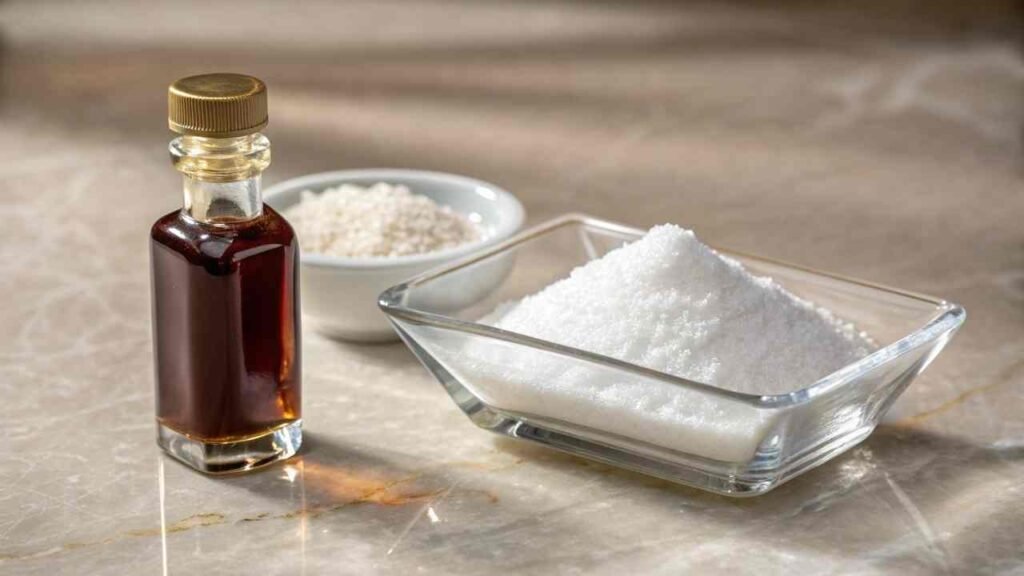Is standard vanillin not making your product stand out? Are your customers demanding more authentic or "natural" ingredients? Premium vanillin is the key to unlocking higher value.
Premium vanillin products are in high demand due to two major trends: the consumer push for "clean label" and natural ingredients, and the technical need for high-purity grades in sensitive industries like pharmaceuticals and perfumery.
In my business, my conversations with buyers have evolved. We no longer just discuss the price of standard vanillin. Now, we focus on the source, purity levels, and specific applications. This is a major market shift, where quality and story are becoming just as important as price.
What is the difference between natural and synthetic Vanillin?
Confused by "natural" versus "artificial"? Using the wrong one can violate labeling laws and disappoint your customers. Let's make the difference perfectly clear.
Natural vanillin is a complex extract from vanilla beans, containing hundreds of flavor compounds. Synthetic vanillin is a single, pure molecule, usually made from petroleum, offering the core vanilla flavor at a much lower cost and with a stable supply.
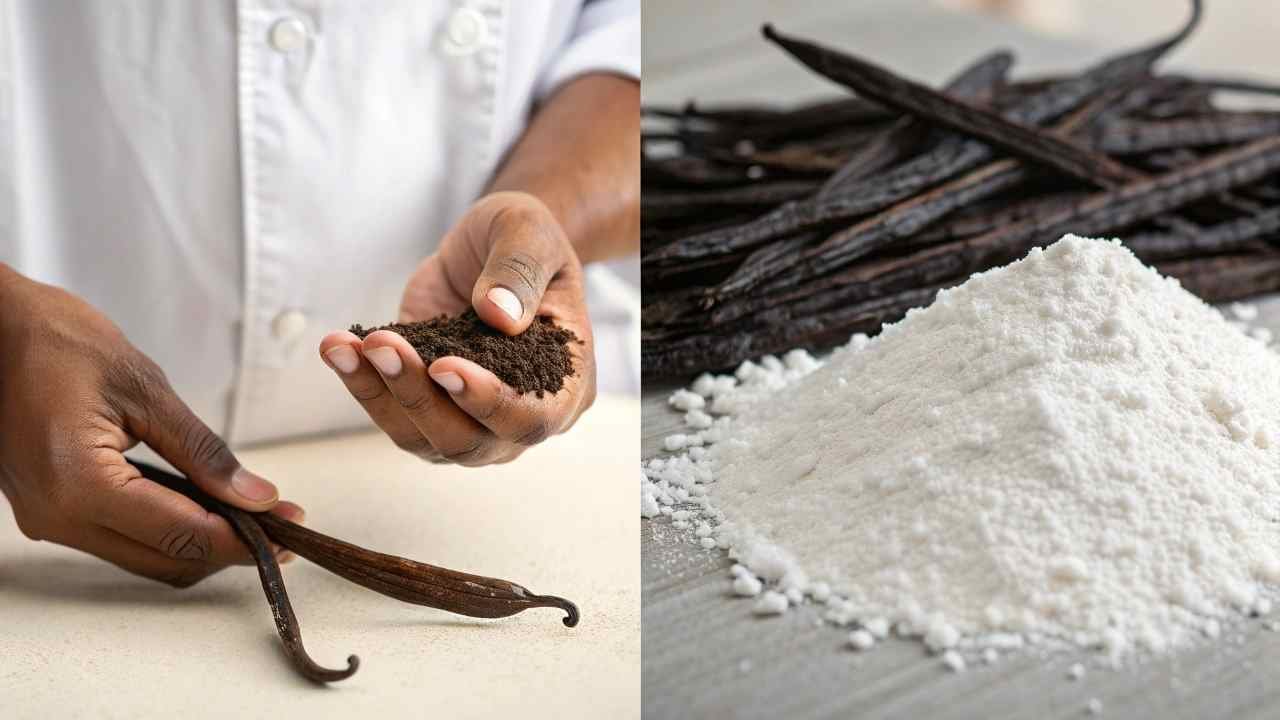
The two products are fundamentally different. Natural vanilla extract1 is an agricultural product. It is a complex blend of hundreds of compounds, giving it a rich, nuanced flavor. It is extremely expensive and has a volatile supply. Synthetic vanillin2 is an industrial product. It is over 99.5% pure vanillin, offering a strong, consistent flavor at a very low cost with a stable supply. The choice depends entirely on the final product's market position and labeling goals.
Natural vs. Synthetic Vanillin:
| Feature | Natural Vanilla Extract | Synthetic Vanillin |
|---|---|---|
| Source | Agricultural (Vanilla Beans) | Industrial (Petroleum or Wood Pulp) |
| Cost | Extremely High | Very Low |
| Flavor | Complex, rich, nuanced | Clean, strong, consistent |
| Labeling Claim | "Natural Vanilla Flavor" | "Vanillin" or "Artificial Flavor" |
How do premium Vanillin grades affect product taste?
Does a more expensive vanillin really taste better? Worried you are overpaying for a difference nobody will notice? Let's explore the real impact on flavor.
Premium grades provide a superior taste experience. Natural vanilla extract offers a richer, more complex flavor. High-purity synthetic grades, like ethyl vanillin, deliver a cleaner, stronger vanilla note without any chemical off-tastes.
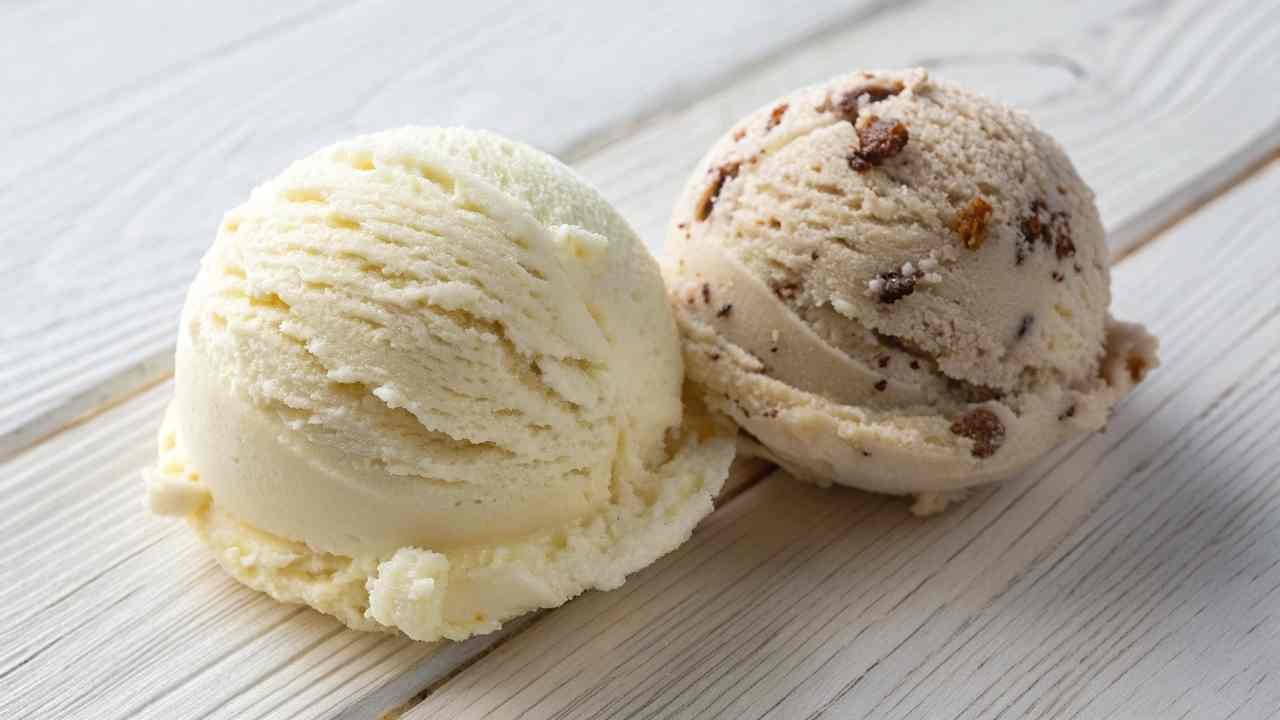
Premium grades deliver a noticeably better flavor. In a vanilla-forward product like gourmet ice cream, the deep, complex notes of natural vanilla extract are unmistakable. For applications needing a strong but pure vanilla taste, premium synthetic grades3 offer a cleaner profile without the faint off-notes that can sometimes be found in standard grades. Ethyl vanillin, a premium synthetic, is 2-4 times stronger, providing a powerful vanilla impact with less volume.
Comparing Vanillin Taste Profiles:
| Vanillin Type | Flavor Profile | Best For |
|---|---|---|
| Standard Synthetic | Strong, clean, straightforward vanilla | General bakery, confectionery, mass-market foods. |
| Premium Synthetic | Very clean, potent, no off-notes | Dairy, beverages, products needing high impact. |
| Natural Extract | Complex, rich, deep, with background notes | Gourmet ice cream, premium desserts, custards. |
Which industries prefer high-purity Vanillin?
Think all vanillin is the same? Using a standard food-grade product in a pharmaceutical application could lead to a costly rejection.
High-purity vanillin is essential for the pharmaceutical industry to mask tastes without impurities, the perfumery industry for creating consistent fine fragrances, and the infant formula industry, which operates under the strictest safety and purity standards.
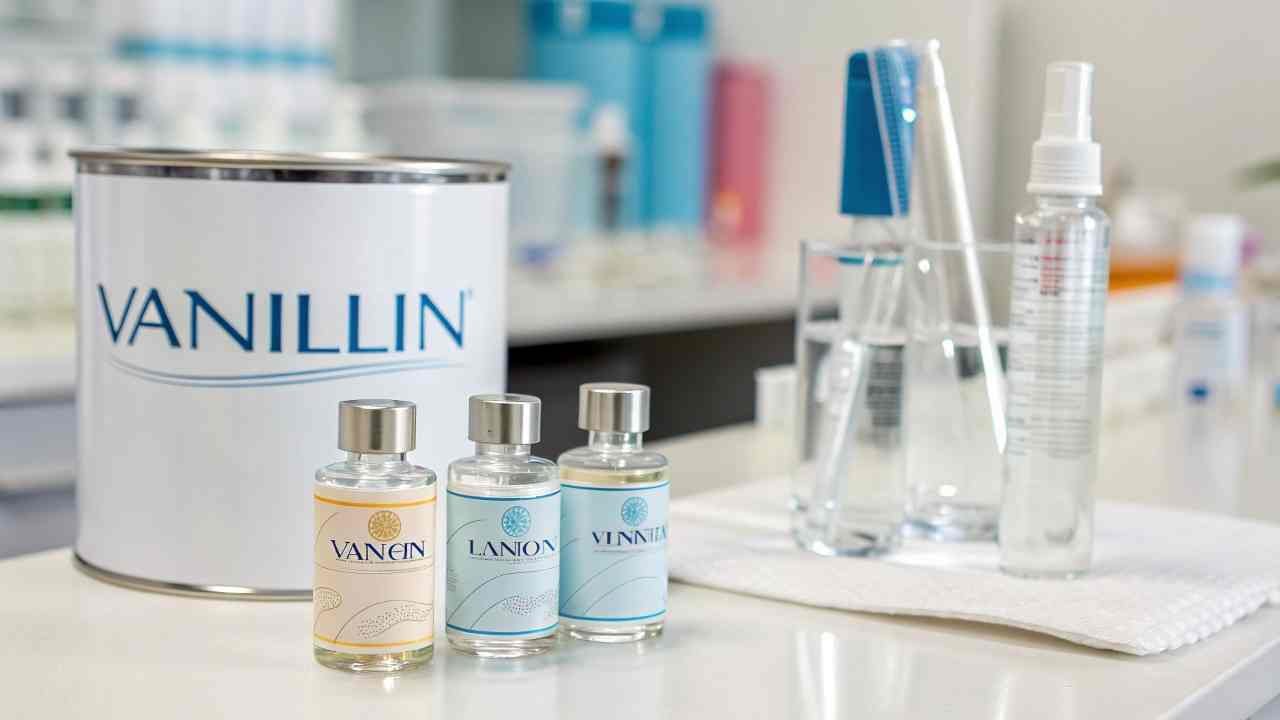
For some industries, purity is a non-negotiable requirement for safety and consistency. The pharmaceutical4 industry requires pharmacopeia-grade vanillin to ensure it does not react with active drug ingredients. The perfumery5 industry demands the highest purity to guarantee a consistent scent profile with no off-notes. And the infant formula industry has zero tolerance for impurities, making high-purity grades an absolute necessity.
Industry Purity Requirements:
| Industry | Primary Concern | Required Quality |
|---|---|---|
| General Food & Beverage | Good taste, cost-effective | Standard Food Grade (>99.5% Purity) |
| Pharmaceuticals | No impurities, safety | Pharmacopeia Grade (e.g., USP), highest purity |
| Perfumery | Consistency, no off-notes | Highest purity, specific olfactory profile |
Does natural Vanillin justify higher pricing?
You see the huge price of natural vanilla and think it must be a rip-off. Let's analyze the real value.
Yes, natural vanillin's extremely high price is justified for brands targeting the "clean-label" consumer market. The ability to label a product as "all natural" allows them to command a higher retail price and attract health-conscious consumers.
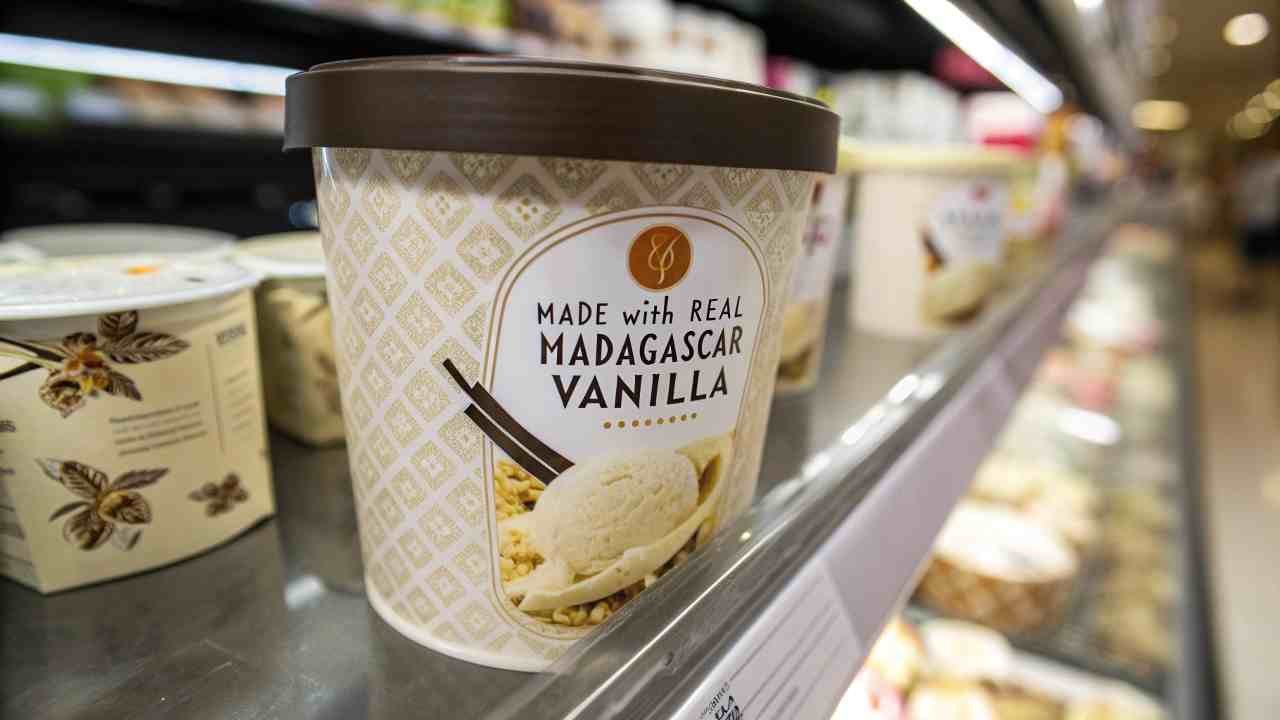
The high price of natural vanilla is not just about its superior flavor; it is about its marketing power. Using natural vanilla allows a brand to make a powerful "clean label6" claim. This resonates with a large segment of consumers who are willing to pay more for products they perceive as more authentic and healthier. This ability to command a premium retail price often means that using the more expensive natural ingredient actually leads to a higher profit margin on the final product.
ROI Analysis: Natural vs. Artificial Ice Cream (per Unit):
| Cost Component | Standard Ice Cream (Artificial Flavor) | Premium Ice Cream (Natural Vanilla) |
|---|---|---|
| Vanillin Cost | $0.02 | $0.30 |
| Total Production Cost | $1.50 | $1.78 |
| Retail Price | $4.00 | $6.00 |
| Gross Profit | $2.50 | $4.22 |
What niche markets demand specialty Vanillin products?
Think you know all the uses for vanillin? There are growing, high-margin niche markets you might be missing out on.
Niche markets demanding specialty vanillin include craft and artisanal food producers seeking authentic flavor, the high-end beverage industry, and the rapidly growing plant-based protein sector, which requires strong, clean flavors to mask off-notes.
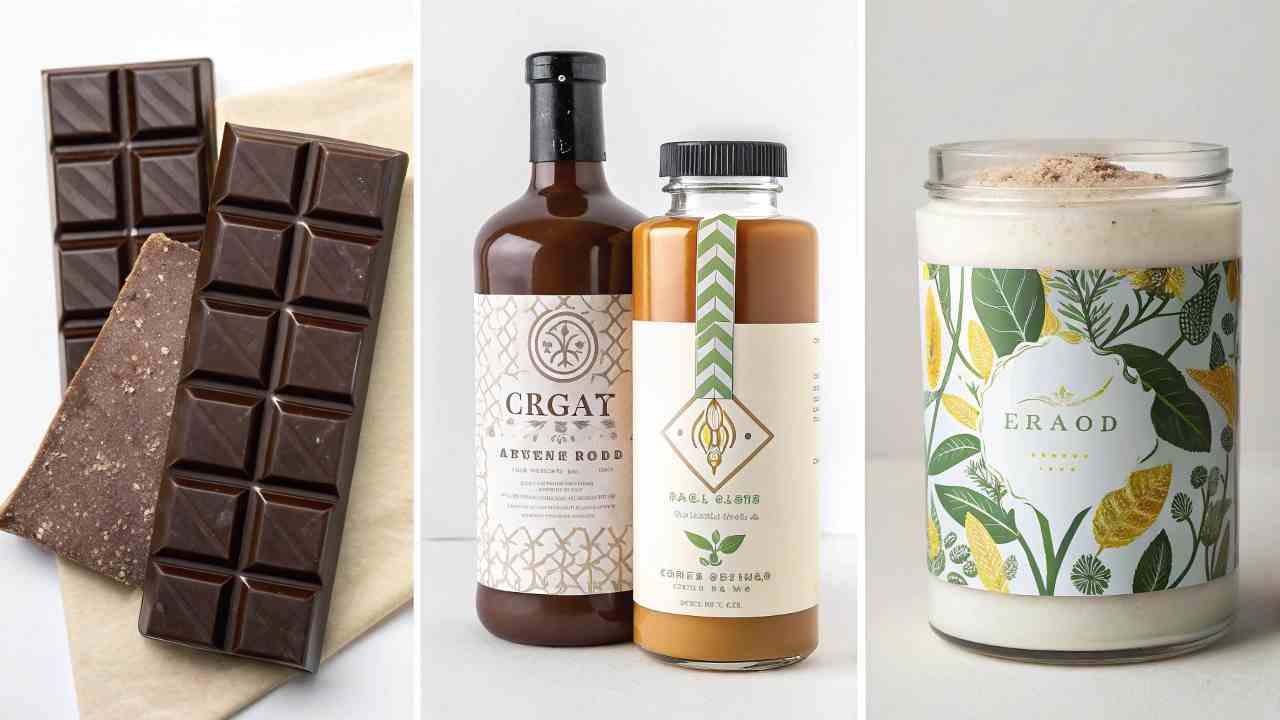
Beyond the mass market, specialty vanillin is crucial for high-growth niches. Artisanal food producers use natural vanilla to support their "hand-crafted" brand story. The craft beverage7 industry uses premium grades for high-end sodas and spirits. Most significantly, the booming plant-based protein industry needs strong, clean flavors like ethyl vanillin to mask the undesirable off-notes of pea or soy protein, making their products palatable and delicious.
Niche Market Opportunities:
| Niche Market | Key Need | Preferred Premium Vanillin Type |
|---|---|---|
| Artisanal Foods | Authenticity, Story | Natural Vanilla Extract |
| Craft Beverages | Premium, clean flavor | Natural Vanilla Extract, High-Purity Synthetics |
| Plant-Based Protein | Strong Flavor Masking | Ethyl Vanillin (High Strength) |
Conclusion
Premium vanillin products are in high demand because they deliver the specific flavor, purity, and marketing power needed for high-value applications in today's sophisticated global market.
-
Explore the unique flavor profile and benefits of using natural vanilla extract in your culinary creations. ↩
-
Learn about the production process and applications of synthetic vanillin, a cost-effective alternative in food and fragrance. ↩
-
Learn about premium synthetic grades and their advantages for achieving a pure vanilla taste in various applications. ↩
-
Understanding purity requirements in pharmaceuticals is crucial for safety and efficacy, making this resource invaluable. ↩
-
Exploring the significance of high purity in perfumery can enhance your knowledge of scent formulation and quality assurance. ↩
-
Understanding clean labels can help you grasp consumer trends and the importance of transparency in food products. ↩
-
Discover insights into the craft beverage industry's trends and how premium ingredients elevate drink quality. ↩
